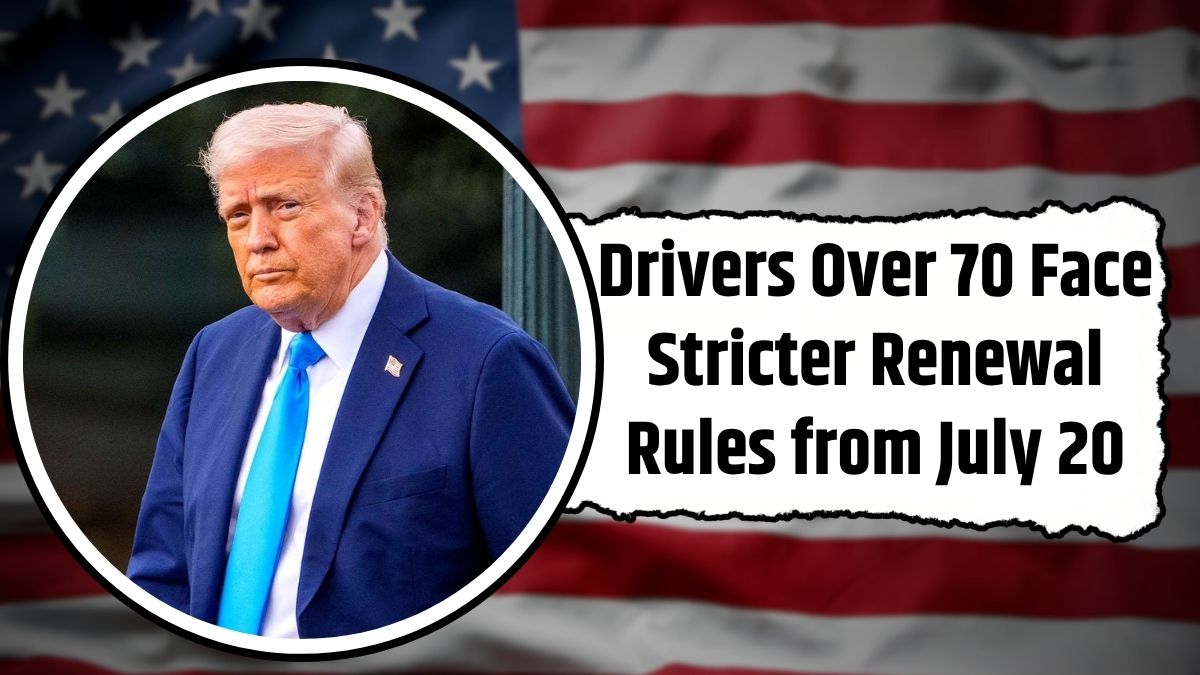Starting July 20, 2025, new driver’s license renewal rules will take effect across the United States, placing special emphasis on drivers aged 70 and older. While these rules are not federally mandated, they are part of a growing initiative among state governments and transportation agencies to improve road safety without compromising the independence of older drivers.
With America’s senior population rapidly growing, these updates aim to strike a balance between mobility and safety. If you or a loved one falls into this age category, it’s essential to understand what these changes involve and how to prepare.
What’s Changing for Senior Drivers?
The primary shift involves more frequent in-person renewals and mandatory vision screenings for drivers over 70. While each state will implement its own guidelines, most are aligning with National Highway Traffic Safety Administration (NHTSA) recommendations.
Key Changes Drivers Aged 70+ Should Expect:
| Change | Description |
|---|---|
| In-person renewal | Required every 2 to 4 years in many states |
| Vision test | Mandatory eye screening to assess visual acuity |
| Medical documentation | Some states may request additional health records |
| Restricted license options | May include daylight-only or no-freeway driving for those with limitations |
| Road tests (if flagged) | Required only when health or driving concerns are identified |
These steps are designed to catch issues early—not to take licenses away due to age alone.
Why Are These Changes Being Implemented?
According to NHTSA data, senior drivers are involved in fewer speeding or reckless driving incidents but are more vulnerable to accidents due to:
- Slower reaction times
- Declining vision or hearing
- Medication side effects
- Cognitive decline
With the U.S. senior population expected to exceed 70 million by 2030, updating license renewal rules is a proactive safety measure.
State-by-State Implementation: What Are Local DMVs Doing?
Although there is no federal mandate, many states are adopting similar approaches. Here’s a look at what some states are implementing for senior drivers:
| State | New Rules for Drivers 70+ |
|---|---|
| California | In-person renewal every 5 years + vision screening |
| Florida | Vision test at every renewal (every 6 years) for drivers 80+ |
| Texas | In-person renewal every 2 years after age 79 |
| Illinois | Road test required every 2 years for drivers 87+ |
| New York | Eye test required every 8 years; re-evaluation possible |
For precise information, drivers should check their local DMV websites.
How Older Drivers Can Prepare for the New Rules
Planning ahead will make the process smoother. Here’s a checklist for drivers approaching or over age 70:
- Book a vision test with an optometrist before your renewal date
- Gather medical records, if required by your state
- Review your DMV renewal notice for any additional conditions
- Stay active behind the wheel to maintain driving skills
- Consider enrolling in a senior defensive driving course—this can even lower your insurance premium
Taking these steps now can help avoid last-minute issues during your renewal process.
What Happens If You Don’t Pass a Test?
Failing a required test doesn’t always lead to an automatic license suspension. Most states offer several alternatives and supports:
- Temporary or restricted licenses (e.g., daylight-only driving)
- Referrals for further medical evaluations
- The right to appeal DMV decisions
- Opportunities to retake tests after addressing concerns
The DMV’s goal is to keep seniors on the road safely, not to remove them without due consideration.
Why These Measures Are Supportive, Not Punitive
Despite public concern, these updates are not about age-based discrimination. They are designed to:
- Protect seniors from unsafe driving situations
- Prevent accidents linked to physical or cognitive decline
- Support aging drivers with fair and transparent policies
As life expectancy rises, maintaining mobility through safe driving standards becomes essential—not only for older drivers, but for all road users.
Support Services Available for Senior Drivers
To make this transition easier, several organizations and state DMVs offer free or low-cost resources, such as:
- Senior driving assessments by occupational therapists
- DMV-endorsed refresher courses
- Personalized driving guidance via AARP and AAA programs
- Discounts on insurance for completing safe driving courses
These resources aim to empower seniors to remain independent and confident behind the wheel.
Moving Forward: Staying Safe and Licensed
These new rules do not represent a crackdown—they are a collaborative step toward safer, more informed driving. By staying proactive and embracing these changes, seniors can keep their licenses longer and drive with greater peace of mind.
Remember: this isn’t about taking away your keys. It’s about keeping you, your passengers, and everyone else on the road safe.
FAQs
Q1. Are all seniors required to retake the driving test?
No. Most states only require a vision test and in-person renewal. A driving test is mandated only if concerns are flagged.
Q2. What happens if I fail the vision test?
You may be allowed to return with corrective lenses or documentation from an eye doctor confirming your eligibility.
Q3. Will I automatically lose my license after turning 70?
No. Age alone does not disqualify you. States evaluate drivers based on health, ability, and safety, not just age.







